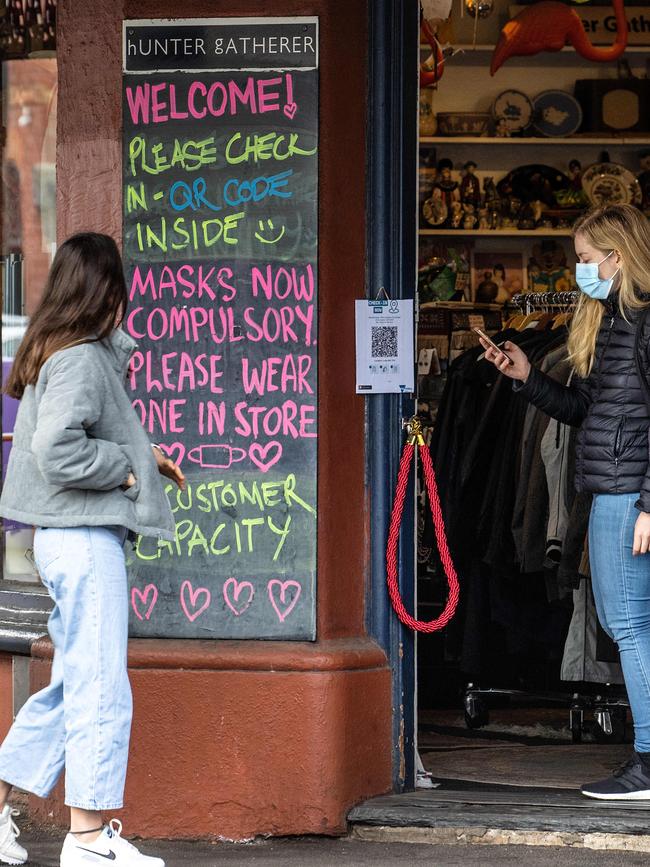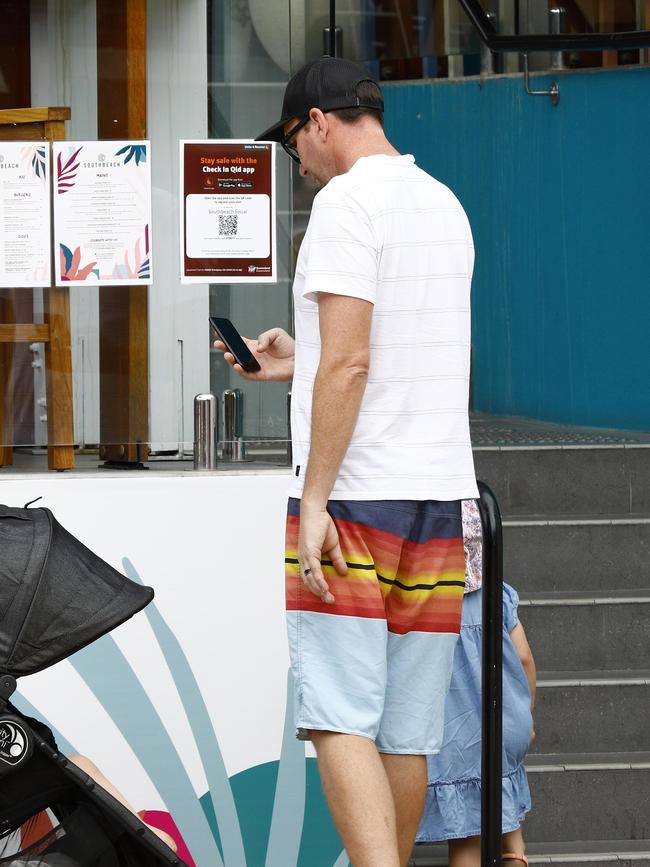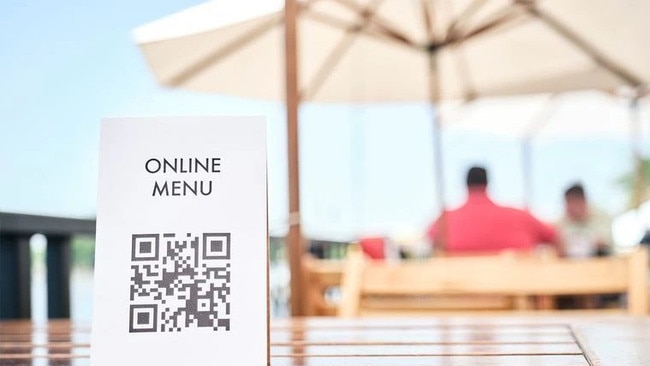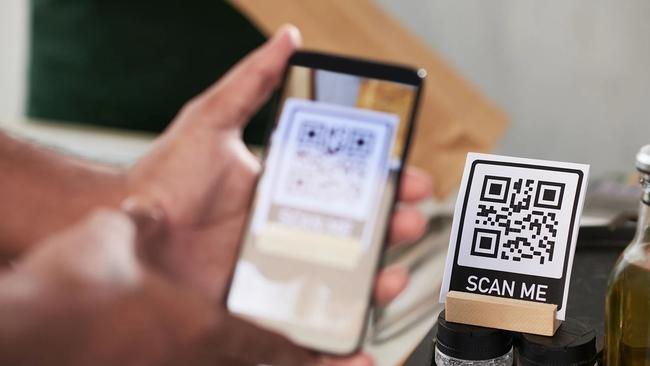Australians defend use of QR codes as debate rages globally
Aussies have launched a staunch defence of a restaurant trend but venues in the US are returning to traditional methods.
Aussies have launched a staunch defence of a restaurant trend as a wave of venues in the US begin returning to traditional methods.
The rise of quick response (QR) codes was swift during the COVID-19 pandemic and many eateries and bars have kept using them since life returned to normal.
Some punters have raged against the technology, complaining about the “inconvenience” of loading up menus on phones and surcharges added to their bills.
But many Australians have backed the use of QR codes after a Reddit user said restaurants should stop using them entirely.
“I know it’s a new thing, but it’s worse than the self service at check-outs. The last thing you should be doing at a restaurant is getting your phone out and trying to use some terrible app,” they wrote.
“Is it just me who feels this way?”


More than 1000 people replied to the thread, with most of the top comments defending online ordering systems as more accessible and convenient than dealing with staff.
“What they should do is offer both options. Some people don’t want to use phones out at dinner and others might want to because they can enable accessibility features,” one said.
A theme of accessibility came up time and again among the comments: “I’m 83, with mobility issues. Very convenient for me,” one person wrote.
Another said the convenience of being able to order from the table was “brilliant”.
“There’s a bar near my work that has them on table,” they said.
“I can just go over there for lunch sit down and order a pint, then order a parma and then order another pint without having to leave my table.
“How is that not awesome?”
In the US, some restaurants and bars are turning away from QR codes due to complaints from customers.

The Wall Street Journal reports diners had “staged a revolt” against the feature, forcing venues to revert to paper menus.
“It’s like self-checkout or putting your own IKEA stuff together,” 59-year-old software trainer Oz du Soleil told the publication.
Generational divides are attributed to whether QR codes are embraced or rejected, with older people more likely to prefer face-to-face service.
Some restaurants are taking a hybrid approach by offering paper menus for dinner sittings and QR codes at lunchtime.
In Australia, a recent study by the financial services company Square found that local businesses were implementing technology for efficiency.
The study did not zero in on QR codes but found half of restaurants driving $1m or more in revenue per year said that automation and online ordering led to an increase in customers.

Square’s Future of Commerce report surveyed businesses and customers in Australia, the US, Canada, and the UK.
It reported that 76 per cent of customers supported restaurants introducing some form of automation when they’re not at full staffing capacity.
Ming-Tai Huh, general manager of Square for Restaurants, said automation and AU would be “key growth levers” for restaurants.
“The vast majority of restaurants will be integrating AI into their operations in small, iterative ways – not through flashy robots but through automation in marketing or kitchen workflows – and these minor changes will add up to saved time and more profit,” he said.
In April, consumer advocates Choice warned about the potential of scammers to use QR codes to fool unwitting Australians into giving over their data and cash.
Although not yet a widespread scam in Australia, criminals in the UK have used “quishing” to sign people up to $77 per month subscriptions using QR codes in public places.
America’s Federal Trade Commission also warned last year warned scammers in the US were trying similar ploys.
The Australian Competition and Consumer Commission reported 56 scams involving QR codes last year, with no financial losses.


